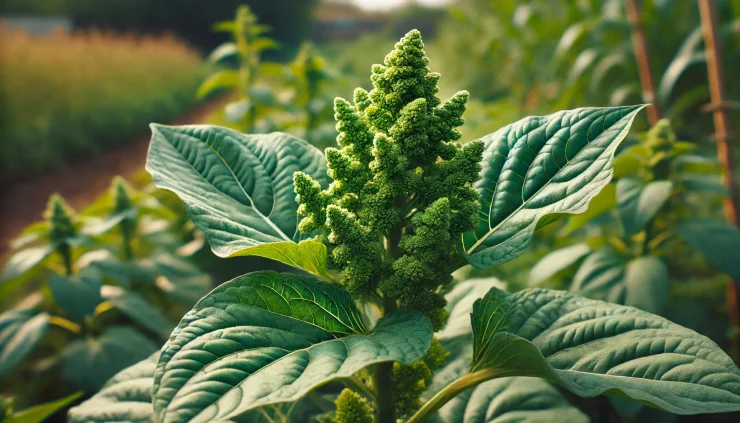Often dismissed as a garden nuisance, pigweed, or Amaranthus retroflexus, is a robust and resilient plant with remarkable health benefits. While frequently labeled a troublesome weed in gardens and agricultural fields, pigweed has long been valued in traditional medicine and cuisine, particularly in its native Americas. Here’s a closer look at its health benefits and why you might consider adding this versatile plant to your diet.
The Nutritional Treasure of Pigweed
Pigweed is a nutritional powerhouse, offering a wealth of vitamins, minerals, and other essential nutrients that contribute to overall well-being. Here are its key components:
Vitamins: Rich in vitamins A, C, and K, pigweed supports vision, immune function, and bone health. Vitamin A aids eye health, vitamin C acts as a potent antioxidant, and vitamin K is crucial for blood clotting and maintaining strong bones.
Minerals: It boasts high levels of calcium, iron, magnesium, and potassium, essential for maintaining strong bones, proper muscle function, and overall vitality.
Protein: Pigweed contains high-quality protein with essential amino acids that the body cannot produce on its own, making it an excellent plant-based protein source.
Fiber: A good source of dietary fiber, pigweed supports digestive health and helps maintain stable blood sugar levels.
Health Benefits of Pigweed
1. Packed with Antioxidants
Pigweed is rich in antioxidants, which combat oxidative stress and neutralize free radicals. This reduces the risk of chronic diseases like heart disease, diabetes, and cancer. The high vitamin C content significantly contributes to these protective properties.
2. Supports Eye Health
Vitamin A in pigweed plays a critical role in maintaining good vision and protecting the surface of the eye. It also helps prevent age-related macular degeneration, a leading cause of vision loss.
3. Strengthens the Immune System
Pigweed’s vitamin C content boosts immune function by promoting the production of white blood cells and creating a barrier against infections. Including pigweed in your diet may help reduce the severity and frequency of common illnesses like colds and flu.
4. Promotes Strong Bones
Vitamin K and calcium in pigweed are essential for healthy bones and teeth. Vitamin K regulates calcium levels and supports bone metabolism, reducing the risk of osteoporosis and fractures.
5. Aids Digestion
The dietary fiber in pigweed promotes digestive health by adding bulk to stool, aiding regular bowel movements, and preventing constipation. It also supports a healthy gut microbiome, essential for overall digestive well-being.
6. Helps Detoxify the Body
Traditionally, pigweed has been used for its detoxifying properties. Its nutrients support liver function and aid in eliminating toxins, contributing to a healthier body.
7. Regulates Blood Sugar
The fiber in pigweed helps stabilize blood sugar levels by slowing sugar absorption into the bloodstream, making it beneficial for those with diabetes or at risk of developing the condition.
How to Include Pigweed in Your Diet
Pigweed is as versatile as it is nutritious, and it can be used in many ways, much like other leafy greens such as spinach. Here are a few ideas to get started:
Salads: Toss fresh pigweed leaves into your salads for a nutrient boost.
Smoothies: Blend pigweed leaves into your smoothies for added vitamins and minerals.
Sautéed Greens: Sauté pigweed leaves with garlic and olive oil for a simple, healthy side dish.
Soups and Stews: Enhance the nutritional value of soups and stews by adding pigweed.
Herbal Tea: Dry pigweed leaves to make a detoxifying herbal tea.
A Final Word on Pigweed’s Potential
Though often overlooked, pigweed (Amaranthus retroflexus) is far more than an ordinary weed. Its exceptional nutritional profile and diverse health benefits make it a valuable addition to any diet. From bolstering immune function and improving eye health to aiding digestion and regulating blood sugar levels, pigweed provides a natural and nutrient-rich way to enhance your overall well-being.
So, the next time you spot this hardy plant, remember it’s more than just a garden invader—it’s a hidden superfood ready to be discovered.






